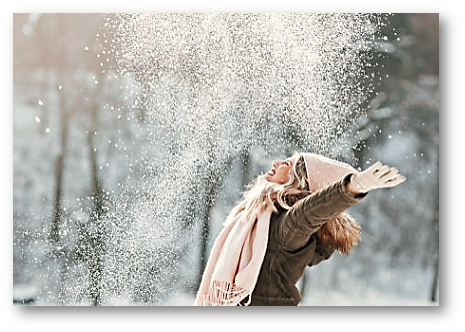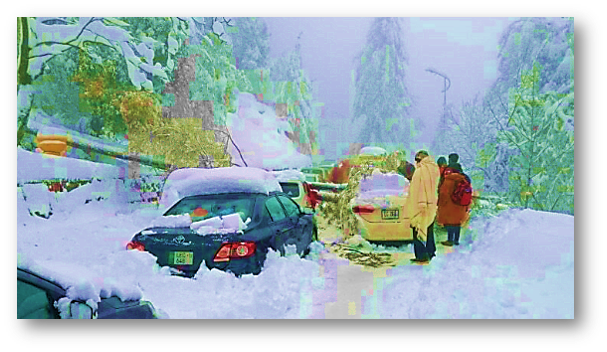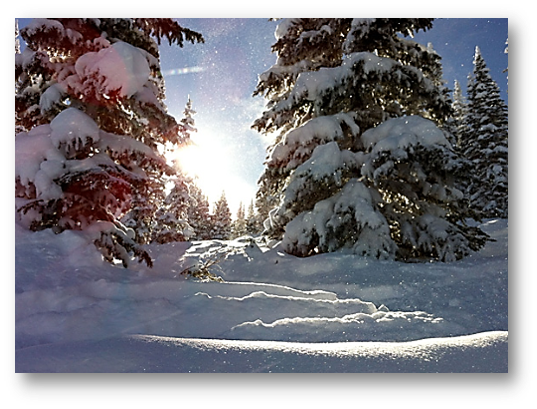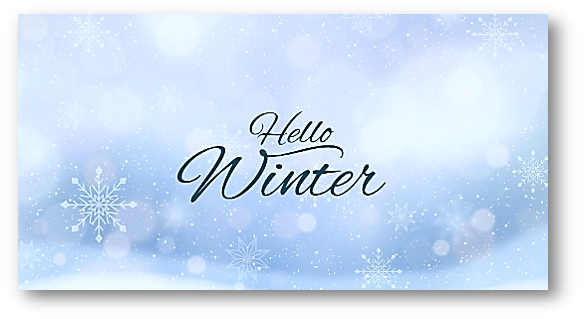Snowfall season
Snowfall season is a time of beauty and wonder, as soft white flakes blanket the earth in a sparkling blanket of frost. The world is transformed into a winter wonderland, with frost-covered trees and fields of untouched snow. It is a time of beauty and wonder, as soft white flakes blanket the earth in a sparkling blanket of frost. The world is transformed into a winter wonderland, with frost-covered trees and fields of untouched snow.
It is a time of magic, as the world seems to slow down and take a breath, wrapped in the stillness of the season. The air is crisp and clean, and the world is full of possibility and potential. Whether you are snuggled up by the fire with a warm cup of cocoa or braving the elements to enjoy the great outdoors, the snowfall season is a time to embrace the beauty and magic of the world around us.

Snowfall brings a sense of wonder and joy!!
For some people, snowfall can be a source of joy and bring a sense of wonder and excitement. The sight of snow-covered landscapes and the opportunity to participate in winter activities, such as skiing, skating, or building a snowman, can be enjoyable and uplifting.
Snowfall can also have a positive impact on mental health in other ways. The cold, crisp air and bright sunshine that often accompany snowfall can improve mood and boost energy levels. Spending time outdoors in natural surroundings has also been shown to have a variety of mental health benefits, such as reducing stress and anxiety, improving mood, and increasing feelings of well-being.
However, it is important to note that not everyone experiences the same level of enjoyment or positive mental health effects from snowfall. For some people, the cold weather and additional demands of winter can be challenging and contribute to feelings of stress, anxiety, or depression.
snowfall and cold weather
If you are someone who finds snowfall and cold weather enjoyable, it is important to stay safe and take precautions to protect your physical health. If you find that the winter weather is having a negative impact on your mental health, it may be helpful to seek support from friends, family, or a mental health professional. Engaging in activities that you find enjoyable and taking care of your physical and emotional well-being can also be helpful in managing any negative effects of the winter season.
FEELING ALIVE AND FREE IN THE CRISP, COLD AIR & GOOD FOOD!!

During the snowfall season, it can be helpful to focus on nourishing, warming foods that provide energy and support overall health. Some healthy and enjoyable food options to consider during the winter months may include:
Soups and stews:
These hearty dishes are a great way to warm up and provide a range of nutrients. Choose soups and stews made with vegetables, legumes, and lean proteins for a balanced meal.
Hot cereals:
Oatmeal, quinoa, and other hot cereals are filling and nourishing options for breakfast or a snack. They can be topped with a variety of healthy toppings, such as nuts, seeds, fruit, and a drizzle of honey or maple syrup.
Roasted vegetables:
Roasting vegetables in the oven helps to bring out their natural sweetness and adds depth of flavor. Choose a variety of root vegetables, such as sweet potatoes, carrots, and beets, and roast them with a little olive oil and your favorite spices.
Spices and herbs:
Adding spices and herbs to your meals can help to boost flavor and add a touch of warmth. Cinnamon, ginger, and turmeric are all great options for adding flavor and nourishment to dishes.
Warm drinks:
Hot tea, coffee, and cocoa can be a comforting and enjoyable way to warm up during the snowfall season. Choose beverages made with whole, natural ingredients and limit the amount of added sugar to keep them healthy.
In addition to incorporating nourishing foods into your diet, it is also important to stay hydrated and get enough physical activity to maintain good health during the winter months. If you find it difficult to get outside due to the weather, consider finding indoor activities, such as yoga or a home workout, to stay active.
TAKE A MOMENT TO LOOK AND APPRECIATE THE BEAUTY, BUT BE CAREFUL!!

There are several unhealthy practices that people may engage in during the snowfall season that can have negative impacts on their health. Some examples may include:
Overeating:
The colder weather and shorter days of winter can sometimes lead to a desire to eat more comfort foods, which may be high in calories, sugar, and fat. Overeating these types of foods can contribute to weight gain and increase the risk of health problems such as obesity, diabetes, and heart disease.
Lack of physical activity:
Snow and cold weather can make it more challenging to get outside and be active, leading some people to become more sedentary. Lack of physical activity can contribute to weight gain and increase the risk of health problems such as heart disease and diabetes.
Excessive alcohol consumption:
Some people may drink more alcohol during the winter months in an effort to cope with the stresses and challenges of the season. However, excessive alcohol consumption can have negative impacts on physical and mental health, including liver damage, addiction, and an increased risk of accidents and injuries.
Neglecting self-care:
The demands of the holiday season and the challenges of winter weather can make it easy to neglect self-care practices such as getting enough sleep, eating a balanced diet, and managing stress. Neglecting self-care can have negative impacts on physical and mental health.
To maintain good health during the snowfall season, it is important to engage in healthy practices such as eating a balanced diet, getting enough physical activity, and taking care of your mental and emotional well-being. It is also important to limit unhealthy practices such as overeating, excessive alcohol consumption, and neglecting self-care.
SPARKLING FROST AND A STILLNESS ALSO IRRITATE IN A WAY!!

It is not uncommon for snowfall to irritate some people, especially if they are sensitive to cold temperatures or have certain medical conditions. Some potential sources of irritation related to snowfall include:
Dry, cold air:
Snowfall often brings with it cold, dry air, which can irritate the skin and respiratory system. This can lead to dry, chapped skin, as well as coughing, sneezing, and other symptoms of respiratory distress.
Allergies:
Some people may experience allergy symptoms, such as sneezing and watery eyes, in response to the cold, dry air or to the presence of mold or other allergens that thrive in cold, damp environments.
Cold-induced asthma:
Cold air can irritate the airways and trigger asthma symptoms in some people, especially those with a history of asthma.
Stress:
Snowfall can be stressful for some people, especially if it disrupts their daily routines or causes problems such as power outages or travel delays. Stress can lead to a variety of physical and emotional symptoms, including irritability, difficulty sleeping, and headaches.
To reduce irritation related to snowfall, it is important to stay warm and stay hydrated, and to use moisturizers and other products to protect the skin and respiratory system from the drying effects of cold, dry air.
IF
you are prone to allergies or asthma, it may be helpful to use medications as directed to manage your symptoms. OR stress is a concern, it can be helpful to practice relaxation techniques, such as deep breathing or meditation, and to seek support from friends, family, or a mental health professional if needed.
SNOWFALL SEASON AND MAJOR HEALTH CONSEQUENCES
Snowfall can have a variety of health consequences, depending on the severity of the weather and an individual’s ability to prepare for and cope with it. Some potential health effects of snowfall and cold weather include:
Hypothermia:
This occurs when the body’s core temperature drops below normal. It can be caused by prolonged exposure to cold temperatures, especially if the body is not properly clothed or if it becomes wet. Symptoms of hypothermia include shivering, slurred speech, and confusion.
Frostbite:
This occurs when skin and tissues freeze due to prolonged exposure to cold temperatures. It most commonly affects the extremities, such as the fingers, toes, nose, and ears. Symptoms include numbness, tingling, and a lack of feeling in the affected area.
Snow shoveling injuries:
Shoveling snow can be physically demanding, and can lead to muscle strains, sprains, and other injuries if not done properly. People with heart conditions should be especially careful when shoveling, as physical exertion can increase the risk of a heart attack.
Slips and falls:
Snow and ice can make sidewalks and other outdoor surfaces slippery, increasing the risk of falls. This is especially dangerous for older adults, who may be more prone to serious injuries from a fall.
To reduce the risk of these and other health consequences related to snowfall, it is important to dress warmly in layers, stay hydrated, take breaks when shoveling, and use caution when walking on slippery surfaces. If you are planning to spend a significant amount of time outdoors in cold weather, it is also a good idea to have an emergency kit on hand in case of unforeseen circumstances.
MISHANDLING OF SNOW AFTER SNOWFALL
Mishandling of accumulated snow after a snowfall can lead to a variety of problems, depending on the specific situation. Some potential consequences of mishandling snow include:
Slips and falls:
If snow is not properly removed from sidewalks, driveways, and other surfaces, it can create slippery conditions that increase the risk of falls. This is especially dangerous for older adults, who may be more prone to serious injuries from a fall.
Traffic accidents:
Snow and ice on the roads can make driving more difficult and increase the risk of accidents. If snow is not properly cleared from roads and highways, it can create hazardous driving conditions that pose a risk to motorists and pedestrians alike.
Property damage:
Snow and ice can cause damage to roofs, gutters, and other parts of buildings if not properly removed. Snow that is not properly cleared from sidewalks and driveways can also create a nuisance for pedestrians and cause damage to landscaping.
Health problems:
If snow is not properly removed, it can create barriers that make it difficult for people to get around, especially those with mobility issues. This can lead to frustration and stress, and can also increase the risk of health problems such as hypothermia or frostbite.
To prevent these and other problems related to the mishandling of accumulated snow, it is important to take appropriate measures to clear snow from surfaces such as sidewalks, driveways, and roads. This may involve shoveling, using a snow blower, or hiring a professional snow removal service. It is also important to take precautions when driving in snowy conditions, such as driving slowly and leaving extra space between vehicles.
SNOWFALL – REMINDER OF THE MAGIC AND WONDER OF THE NATURAL WORLD!!

Snowfall can be a beautiful and awe-inspiring natural phenomenon, transforming the world into a sparkling winter wonderland. The sight of snow-covered landscapes and frost-covered trees can be breathtaking, and the peaceful stillness of a snowy day can be deeply calming. Snowfall also provides the opportunity to engage in a variety of winter activities, such as skiing, skating, snowshoeing, and building snowmen, that can be enjoyable and uplifting.

In addition to its beauty, snowfall also has important ecological functions. Snow serves as a natural insulator, helping to protect plants and animals from extremely cold temperatures. It also acts as a natural water storage system, releasing water slowly as it melts in the spring and summer, helping to support plant growth and sustain ecosystems.
CONCLUSION
Overall, snowfall is a vital and beautiful part of our natural world, and it is important to appreciate and respect the role it plays in the environment. By taking care to protect natural habitats and to reduce our impact on the environment, we can help to preserve the beauty and ecological importance of snowfall for future generations to enjoy.
“Snowfall brings a sense of wonder and joy, as the world is transformed into a winter wonderland and the air is filled with the sound of laughter.”
KEYWORDS: spring season, snowfall, beauty, nature, winters, moments, bloom, breathtaking, holiday season, New Year, celebrations, white blanket of snow, cold weather
REFERENCES:
- Boon, S. (2012). Snow accumulation following forest disturbance. Ecohydrology, 5(3), 279-285.
- Guan, B., Molotch, N. P., Waliser, D. E., Fetzer, E. J., & Neiman, P. J. (2010). Extreme snowfall events linked to atmospheric rivers and surface air temperature via satellite measurements. Geophysical Research Letters, 37(20).
- Miyatake, H., Yamamoto, K., Ozaki, A., Kawada, S., Nishikawa, Y., & Beniya, H. (2020). Extreme snowfall and residential care: A case report of a 2‐year‐old girl with heart failure. Clinical Case Reports, 8(6), 950-954.
- O’Gorman, P. A. (2014). Contrasting responses of mean and extreme snowfall to climate change. Nature, 512(7515), 416-418.
- https://lifebiologs.com/stay-hydrated-and-moisturized-even-in-the-driest-of-winters/
- https://lifebiologs.com/health-benefits-of-winter-season/

